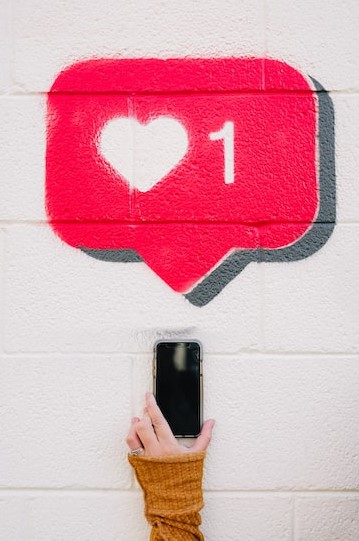An optimum state of mental health can be defined as a holistic state of mental well-being where people not only understand their abilities but also recognize others’ abilities, contributions, and well-being. In a state of optimum mental health, individuals function efficiently to get things done and are capable of contributing significantly to their communities. Social media, however, is often blamed for exacerbating mental health conditions and aggravating mental health problems. Is social media responsible for a decline in mental health?
Humans are social creatures, and we require human connections to thrive, learn and operate efficiently daily. Social networking is undeniably crucial to keeping our mental health in check. However, the quality and the quantity of these relationships make all the difference.
According to The Displaced Behavior Theory, people who spend more time in activities that involve sedentary behavior often use less time for face-to-face interactions. Social Media use itself is a sedentary behavior that makes people less likely to interact with each other in person or face-to-face.
Studies have found that social media platforms like Facebook, Twitter, and Instagram act as stressors, potentially leading to depression, anxiety, and negative feelings. Additionally, studies have also found that frequent social media use can be directly correlated with greater symptoms of psychopathology. Since many young adolescents resort to social media to discuss their problems or find emotional relief when dealing with a difficult problem, it alters their psychological paradigm. They break away from essential meaningful personal interactions that could have a positive impact on their lives and instead start developing an attachment to a public space where other people’s validations, opinions, and suggestions start to have actual meaning for them. Most of the time, this kind of attachment can be extremely harmful to the emotional maturity and development of a young adolescent.
Studies have also found the four domains of social media: activity, time spent, investment, and addiction; all to be correlated with depression, anxiety, and psychological distress. In fact, passive social media use (reading posts) has been directly associated with depression. Almost all credible studies conducted on social media have concluded that it is directly or indirectly responsible for exacerbating anxiety, depression, and PTSD symptoms.
The problem is social media lies in the way it is structured to affect human behavior. Social media programs are the reward center of the brain for excessive dopamine-seeking behavior. Dopamine is a neurotransmitter that affects our mood, behavior, and sleep pattern and is even responsible for addictive behavior. Studies have found that compulsive users of social media tend to isolate and constantly chase their reward system/dopamine loop: spending most of their time within these platforms, ignoring real-life relationships, or even school/work responsibilities. There are claims that social media platforms often focus on the amount of time spent on a certain post, image, or video content and the algorithm is designed to show similar content that floods the brain with dopamine. Additionally, studies have found that using social media to scroll by posts and not going deeper into ideas decreases the span of attention and focus among individuals.
Social media has also been found to physically alter brain structure in both adults and adolescents. A publication by researchers at the University of North Carolina found that habitually seeking and checking social media feeds alter the amygdala significantly, which has been directly correlated with teenagers being more sensitive toward social situations. It was also found that their cognitive abilities, focus, and attention spans were significantly lower than teenagers who did not spend much time on social media. Additionally, distinct brain scans from studies show that such dopamine-seeking behavior alters neural networking and has significant negative impacts on emotions and memory. In fact, studies have also found that the frequency of social media visits and time spent has a direct connection with suicidal behavior and suicidal tendencies among teenagers.
Hence, it is imperative to cut down screen time and avoid excessive social media use to attain better mental health.
if you or anyone you know is suffering from mental illness, neurological diseases like Alzheimer’s disease, alcohol addiction, brain trauma, cognitive deficiency, or undergoing treatments for neurodegenerative diseases, please contact Specialized Therapy Associates at 201-488-6678 or The Functional Medicine Center for Personalized Care, LLC (www.FxMedCenters.com) at 201-880-8247 for our Integrative Mind-Body Health services which can greatly help you with holistic mind-body healing.
References:
Firth J, Torous J, Stubbs B, Firth JA, Steiner GZ, Smith L, Alvarez-Jimenez M, Gleeson J, Vancampfort D, Armitage CJ, Sarris J. The “online brain”: how the Internet may be changing our cognition. World Psychiatry. 2019 Jun;18(2):119-129. doi: 10.1002/wps.20617. PMID: 31059635; PMCID: PMC6502424.
Holmgren HG, Coyne SM. Can’t stop scrolling!: pathological use of social networking sites in emerging adulthood. Addict Res Theory 2017;25:375‐82.
Karim F, Oyewande AA, Abdalla LF, Chaudhry Ehsanullah R, Khan S. SM Use and Its Connection to Mental Health: A Systematic Review. Cureus. 2020 Jun 15;12(6):e8627. doi: 10.7759/cureus.8627. PMID: 32685296; PMCID: PMC7364393.
Maza MT, Fox KA, Kwon S, et al. Association of Habitual Checking Behaviors on SM With Longitudinal Functional Brain Development. JAMA Pediatr. Published online January 03, 2023. doi:10.1001/jamapediatrics.2022.4924
Twenge JM, Joiner TE, Rogers ML et al. Increases in depressive symptoms, suicide‐related outcomes, and suicide rates among U.S. adolescents after 2010 and links to increased new media screen time. Clin Psychol Sci 2017;6:3‐17.


